Staff Picks
The staff of Beagle and Wolf Books & Bindery has been reading these books and recommends them to you.
|
 Jen Jen |
 |
 |
|
|
|
|
 |

|
 |
How Not to Be Wrong: The Power of Mathematical Thinking
by Jordan Ellenberg
If you know me personally, you’re probably wondering if this is REALLY a math book and if so, what on earth I’m doing reading it. It IS a math book and I DO like it, believe it or not! I’ll be honest, I don’t understand a lot of the math, but it doesn’t matter because Ellenberg is so funny. He takes real life problems and shows how math was used to solve them. One example is when the military was concerned about the number of war planes which had been shot down and turned to a mathematician for help designing better planes. The book is a little like Freakonomics or writing by Malcolm Gladwell. |
| |
|

|
|
The Once and Future King
by T.H. White
I recently read (and reviewed in our July newsletter) H is for Hawk. One part of that memoir deals with author T.H. White’s attempt to train a goshawk. So, I decided to read White’s classic fantasy, The Once and Future King. The book is a retelling of the legend of King Arthur and Camelot. My reading of it has been enriched by H is for Hawk. Isn’t it fun when the books we read speak to each other?
|
| |
|
 |
|
Kitchens of the Great Midwest
by J. Ryan Stradal
This is likely to be a novel that stays with me for years. This is a great story told in a creative way and in a familiar setting (the Midwest). The book opens with Lars Thorvald, a not-so-stunning young man, raised by Scandinavian Lutherans who force him to make lutefisk for years. While he comes to hate lutefisk and refuses to prepare it as an adult, he does love to prepare other food and becomes a chef. Once employed at a restaurant, Lars meets and marries Cynthia, the head waitress. They have a daughter, Eva, together, but Cynthia discovers motherhood is not for her and runs away with a sommelier. From there, we follow Eva, at times more closely than others. Each chapter is titled with a food name (ie: the first chapter is Lutefisk) until the last chapter which is titled The Dinner. Throughout the book, Eva encounters a number of well-drawn people – all of them flawed and all of them familiar. We meet children, teenagers, young adults, single parents, restaurant industry folks. We meet snobs, jerks, the clueless. Nearly the entire book takes place in the Midwest. Author Stradal does a remarkable job of giving each character the right amount of attention – we know each fully without the book being an unbearably long tome (it’s just over 300 pages). Characters make choices we may or may not agree with and at the heart of it all is Eva, someone we all yearn to know. Each character and setting contribute to who Eva is/becomes. I am not a foodie, but still found myself drawn to the food and recipes in the book, which are tied in significant ways to characters and circumstances. The writing in this book is easy-flowing, often funny and Stradal struck the perfect balance is not tying up every detail but not leaving the reader with too much unfinished business. I’m often asked, “What have you read lately that is REALLY good?” and the answer is, unequivocally, “Kitchens of the Great Midwest by J. Ryan Stradal”.
(Editor’s note: Jen’s review appeared in the August 22 edition of the Park Rapids Enterprise.) |
| |
|
|
|
|
|
|
|
 Sally Sally |
|
 |
|
|
|
|
|

|
|
The Sun and Other Stars by Brigid Pasulka
I’ve discovered, much to my surprise, that I’m a sucker for novels set in Italy. In this book Etto, a young man in his early twenties, is adrift after the deaths of his twin brother and their mother. In their grief, he and his father have become estranged. The father, like most of the men in their small town, is obsessed with soccer. Etto is disdainful about the sport until a Ukrainian soccer star quietly arrives at a local villa, hoping for refuge from an international scandal. And did I mention that his sister comes along? Under their influence, Etto begins to mend his relationship with his father and opens himself to life again. The book is a love story on many levels, exploring family, compromise, and community while telling a great story.
|
| |
|
 |
|
Through the Evil Days
by Julia Spencer-Fleming
I seem to make a habit of reading mysteries only to discover I’ve started in the middle of a series. The latest is the Clare Fergusson/Russ Van Alstyne series. She’s an Episcopal priest and he’s a police chief, a little reminiscent of Rina Lazarus and Pete Decker. In this book, Fergusson and Van Alstyne are on a delayed honeymoon. Not only are they in the midst of a horrific blizzard, they are involved with a case in Russ’ jurisdiction. (There’s no way to summarize the plot without giving too much away.) The supporting characters are fully developed, and their lives give texture to the book. The book has good writing and all-too-human characters. I’m going to go back and start the series at the beginning. (This book is number eight.) Full disclosure: the book contains adult language and situations.
|
| |
|

|
|
Someone
by Alice McDermott
I’d forgotten how much I like Alice McDermott’s work until we read Someone for book group! It’s the story of an ordinary woman, Marie, who lives an ordinary life in Brooklyn. McDermott turns this story into an unforgettable book. We follow Marie from childhood through old age, marveling at the author’s empathy and insight, and the beauty of her writing. |
| |
|
|
|
|
|
|
|
 |
|
|
|
|

Bob |
|
 |
|
A Carlin Home Companion: Growing Up with George
by Kelly Carlin
I’m a sucker for anything written about comedians, so when I was asked to read the new George Carlin book, I said “sure.” When I realized it was written by his daughter Kelly, I thought, “Great another ‘tell all’ special.” But still, I was willing to give it a shot and read a few pages. When I looked up, I’d read twenty pages! The language isn’t always pretty (you read a book about Ganges Khan you get gore; you read about George Carlin you get the Seven Dirty Words…and then some) but I found the book an easy and interesting read. Kelly Carlin takes you through her life with her famous and controversial dad and alcoholic mother, with some interesting insights into the draw of “Entertainment” lifestyle. I think these insights were what kept me reading as she showed a softer side of George Carlin as father, not only boundary-crossing comedian. The book slows a little when she describes her own professional journey but ends strong. The book releases in hardcover on September 15 and may be preordered through the store. |
| |
|
|
|
|
|
|
|

Gail |
|
 |
|
|
|
|
| |

|
|
Winding Ways Quilt
by Jennifer Chiaverini.
It's amazing how quilters put together pieces of cloth using different colors and patterns. The end result is a beautiful piece of fabric art. The author of this book works in a similar way, bringing her characters-each different-into a cohesive and interesting story as they attend a quilting retreat.
|
| |
|

|
|
Amy and Isabelle
by Elizabeth Strout
The author of Amy and Isabelle also wrote Olive Kitteridge, which was a Pulitzer Prize winner. This book is the story of mother, Isabelle and daughter, Amy. They seem to have a great relationship until Amy finds first love. This causes a rift between them. It is only after Isabelle faces her own secretive past that they can reconcile their differences. The author does a superb job of describing the thoughts and actions of her characters. |
| |
|

|
|
Fractured Land
by Lisa Westberg
The author's grandfather purchased mineral rights in North Dakota in the 50's. Lisa, who is an environmentalist, suddenly realizes that when her mother dies she will be receiving substantial oil royalty checks from this land. Does she take them or stick with her convictions? Lisa heads for North Dakota to research her family, their oil wells and the new oil fracking industry. This is a great read for our area as we are feeling the impact right here in Park Rapids. |
| |
|
|
|
|
|
|
|
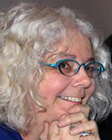
Hannah |
|
 |
|
|
|
|
| |


|
|
Go Set a Watchman and To Kill a Mocking Bird
by Harper Lee
I wasn't sure whether to read Watchman, because I heard that Atticus Finch turns out to be racist, and I didn't know if I wanted to tarnish one of America's iconic heroes. So first I reread Mockingbird, the exemplary novel that helped shape our perceptions of the South in the 1960s. I was struck by a passage where Atticus, who treated everyone with respect and compassion, said, "There's nothing more sickening to me than a low-grade white man who'll take advantage of a Negro's ignorance. Don't fool yourselves--it's all adding up and one of these days we're going to pay the bill for it." So he did harbor views that set the stage for Watchman. But the book isn't really about Atticus, it's about Scout, returning to Maycomb from New York as an adult, much as Lee returned to her home in Monroeville, Alabama. It's a book about very decent people doing indecent things, and about struggling to separate your love for people from the things about them that you hate.
I
heard on NPR that Watchman was written first. Mockingbird started because editors wanted more back story about Scout, which makes sense because the childhood memories in Watchman are the best parts. Somehow the additions to Watchman took on a life of their own. Thank God they did, as Mockingbird became a part of the civil rights movement and helped encourage us to be our best selves in a way that the elder Atticus could not inspire.
It's also fun to see how the two books relate when you read them together: they share some passages word for word, like the history of Maycomb and the description of Aunt Alexandra. And some things change interestingly: for example, the Ewell girl is four years younger in Watchman.
If Watchman had been published sooner, it probably would have been a very different book. But as it stands, it's a document about how Lee got to Mockingbird. And Watchman has a lot to say to us today about what Southerners had to process, how earlier attitudes about race still affect us, and about intolerance, including intolerance toward those we condemn for bigotry. I'm glad I read it.
|
| |
|

|
|
The Mockingbird Next Door: Life with Harper Lee
Marja Mills
Harper Lee (aka Nelle) refused to talk with journalists for decades. She decided to make an exception of Mills, who came to Monroeville when Chicago chose To Kill a Mockingbird for its first One City One Book read. When lupus forced Mills to take an extended leave, Lee invited her to rent the house next to the home she shared (half of each year) with her sister Alice, "Atticus in a skirt.” The sisters spent a year and a half sharing memories, and introducing Mills to their neighbors and haunts. The cover of this book shows Harper Lee sitting with the actress who played Scout. It's apt: clearly Nelle revealed a lot about her childhood, and about coming home as an adult, in her two novels. Now Mills tells us how this remarkable, joyful woman spent her remaining decades. What a gift!
|
| |
|
|
|
|
|
|
|

Linda |
|
 |
|
|
|
|
| |
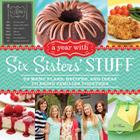 |
|
Six Sisters' Stuff
by Six Sisters
Linda, a former staff member, has moved away, but she’s still reading and still cooking. Her latest recommendation is a book of recipes, projects, and ideas from the creators of a popular cooking and crafting blog. Linda says, “There isn't one recipe in the entire thing that I wouldn't like to cook/eat!” Plus, the recipes use ingredients commonly on hand, with easy to follow and instructions and beautiful pictures. |
| |
|
|
|
|
|
|
|
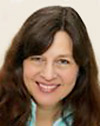
LouAnn |
|
 |
|
|
|
|
| |

|
|
Go Set A Watchman
by Harper Lee
This is the "found" manuscript that pre-dates To Kill a Mockingbird. Lee wrote this version first, and it was rejected by an editor with the suggestion that she instead write the back story. She did, and that book is To Kill a Mockingbird. There is a lot of controversy about this "new" book—both about its content (Atticus is a racist? What?!?) and its publication (Lee may or may not be of sound enough mind to have given her true permission, and the timing is suspect coming just after the death of her sister/business manager. Lee was always adamant in the past that this book not be published.) Taking all of that into consideration, I read the book, as I have taught Mockingbird for 26 years and plan to continue. I must know all things Harper Lee.
Here are my thoughts after having read it:
It is clearly a rough draft, and the editor was correct to reject it. I am not of the belief that has been expressed by some that this proves the rumor that Lee did not write Mockingbird (Truman Capote is the usually suggested ghost writer). The voice of the writer is exactly the same in both books. In Watchman, however, the structure is weaker. Lee spends too much time "telling" and not enough time "showing." She skims the surface of events that need to be fleshed out. For those who know Mockingbird well, it makes perfect sense when Scout is horrified that her heroic father falls from grace. But Mockingbird did not exist when this book was written. Without the back story, the reader simply would not believe that Atticus was such a hero, or at least would wonder why. Newsflash: writers of bestsellers usually have many failed manuscripts in their drawers and attics before the book that hits it big. To be a polished, competent, brilliant writer on the first try is pretty much unheard of. This is a first attempt. Like most first attempts, it is clumsy.
There has also been much hand-wringing over Atticus's racism in the book. I maintain that this makes us uncomfortable in ways that we should be made uncomfortable. "Good white people" cling to Atticus Finch like a life raft saving us from the stormy seas of our own history (and present). But it is completely unrealistic to believe that a 75-year-old man who had spent his entire life in rural Alabama would have embraced desegregation in the 50s. Lee is not promoting Atticus's view that black people are "in their infancy as a culture" and not ready for the responsibilities of voting and self-determination. She is exposing it. Scout (Lee) is horrified by it, and so is the reader. That's a thing Lee gets right in this rough draft—she makes us feel what her main character is feeling, and that's no small feat. She also shows us that it is not impossible for a good-hearted person who loves law and equality above all else to be paternalistic and condescending to a culture that he sees as inferior to his own. In this book, Atticus is wrong, and that allows him to be human. I like him better this way, and find him much more believable.
|
— page top —
|
|
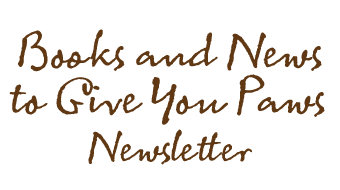
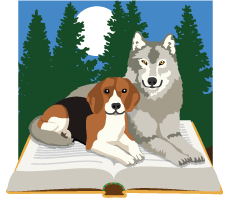
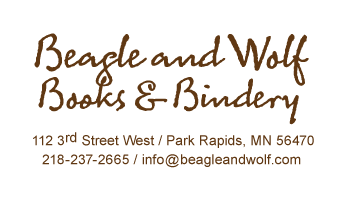
 Jen
Jen Sally
Sally






